
Young protectors and modern managers for Azerbaijan’s forests
All sorts of everyday objects are made from wood, such as furniture, railway sleepers, matches, pencils and paper. But how often do we remind ourselves that the forest’s potential is not limitless, and that it needs protection?
Recently, the movement of young forest rangers in Azerbaijan has seen a revival. Schoolchildren from the country’s forest-filled regions have united in groups to study the forests and their peculiarities and carry out educational work.
This was one of the results of the FLEG (Forest Law Enforcement and Governance II) programme, aimed at improving law enforcement and governance in the forest sector, which was implemented in the six EU Eastern Partner countries: Armenia, Azerbaijan, Belarus, Georgia, the Republic of Moldova and Ukraine.
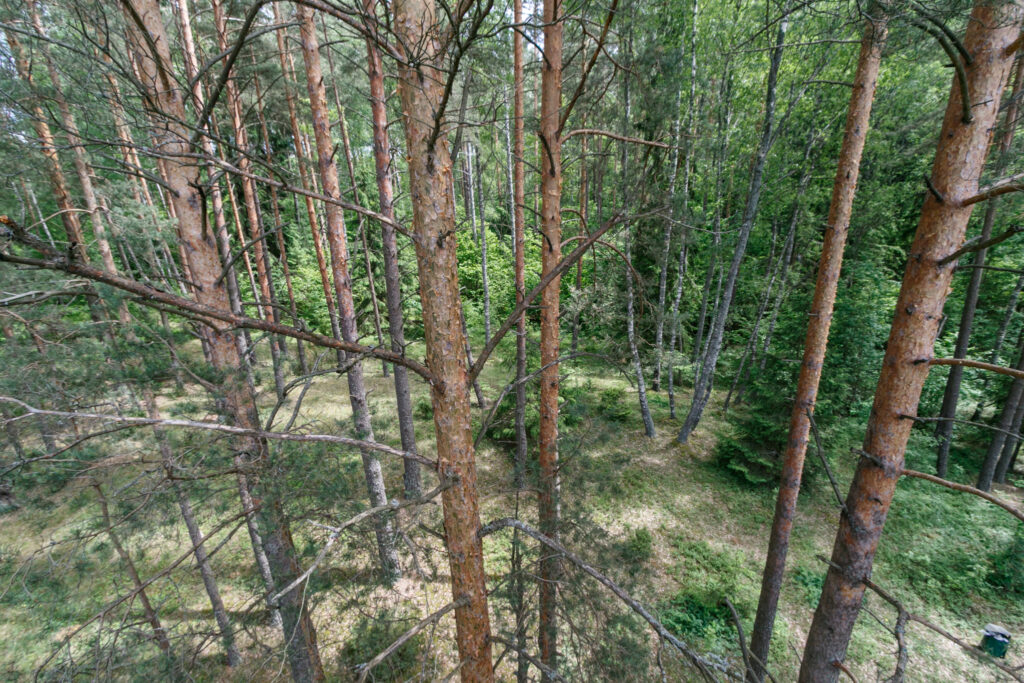 FLEG programme was aimed at improving law enforcement and governance in the forest sector in the Eastern Neighbourhood
FLEG programme was aimed at improving law enforcement and governance in the forest sector in the Eastern Neighbourhood
Funded by the European Union, the programme contributes to the enhancement of reforms in forest policy, deals with legislative and administrative issues in this sector, and also covers the issues of forest fires and climate change. Despite the fact that the second stage of the project ended around a year and a half ago, its results are palpable even today.
“Environmental education was one of the key components of the FLEG programme. During the six years of work, we managed to get the young people interested in forests, to instil love for the forest, to help them embrace the need to care for forests, as if [it were] about great wealth,” says the national coordinator of the FLEG programme Azer Garayev.
Taking into account the lack of industrial forest exploitation in Azerbaijan, the main threat to the forest is the harmful impact of human activities, particularly pollution, illegal logging and overgrazing. That is why, according to the programme coordinator, educating the population was one of the most important tasks.
“It was important to explain this to the local population and provide them with numbers and facts, so they would see what negative impacts can be caused by improper treatment of the forest and that the depletion of forest resources will inevitably entail socio-economic losses for the population. In other words, this process is interconnected,” Garayev says.
Units of young forest rangers, which were created in wooded areas of Quba, Ismailli, Qakh and Zaqatala in the north and north-west of Azerbaijan have started educating people. Children aged 11 to 17 participated in the groups, with each group consisting of 10 to 15 people.
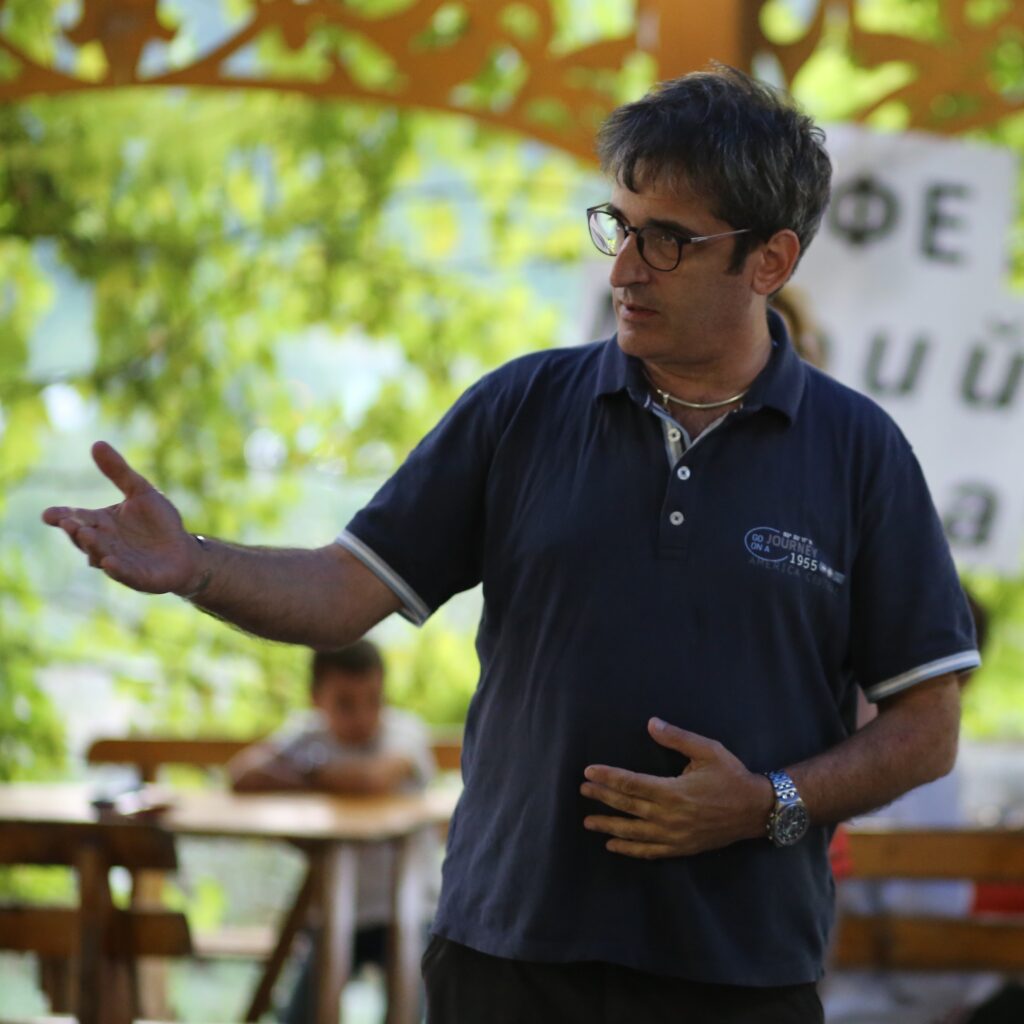 Azer Garayev, national coordinator of the FLEG programme in Azerbaijan
Azer Garayev, national coordinator of the FLEG programme in Azerbaijan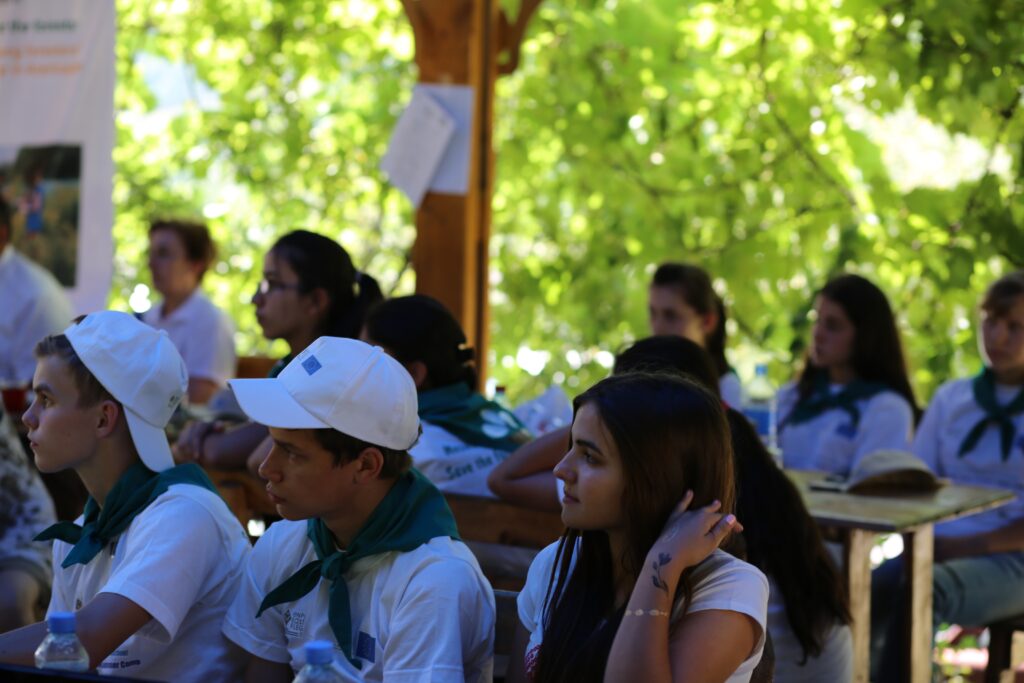 Young Azerbaijani participate in educational activities organised within FLEG programme in the country
Young Azerbaijani participate in educational activities organised within FLEG programme in the country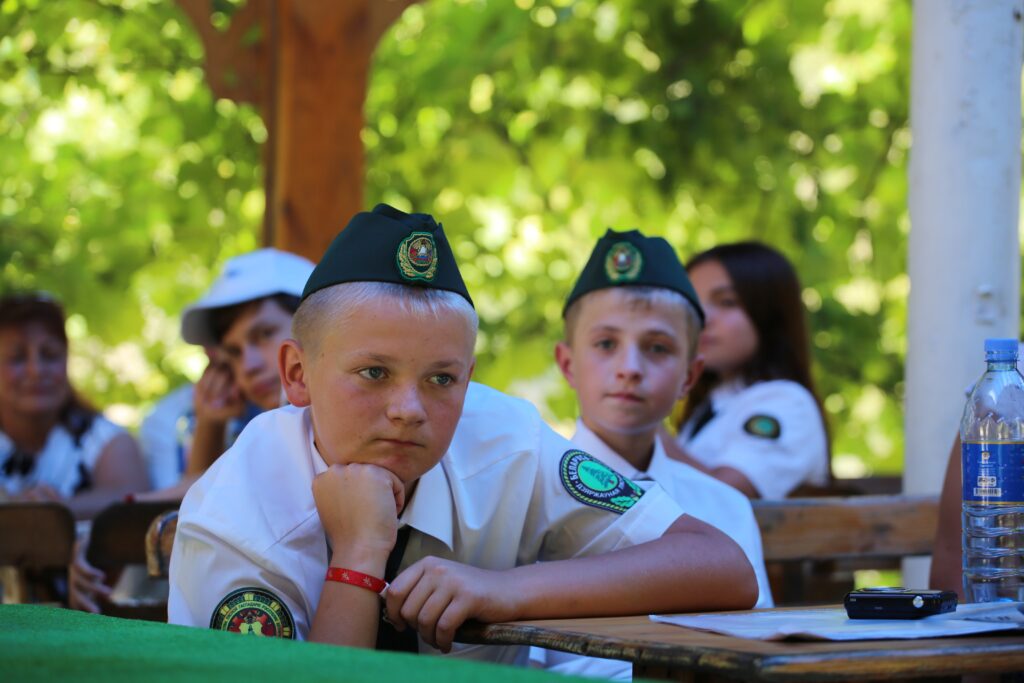 Young Azerbaijani participate in educational activities organised within FLEG programme in the country
Young Azerbaijani participate in educational activities organised within FLEG programme in the country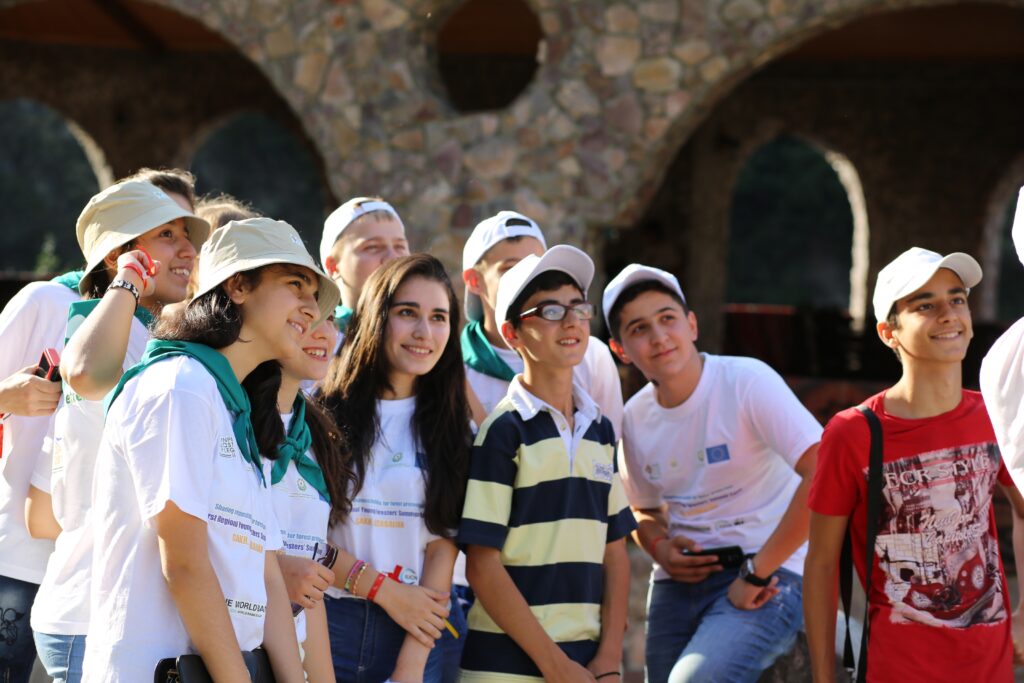 Young Azerbaijani participate in educational activities organised within FLEG programme in the country
Young Azerbaijani participate in educational activities organised within FLEG programme in the country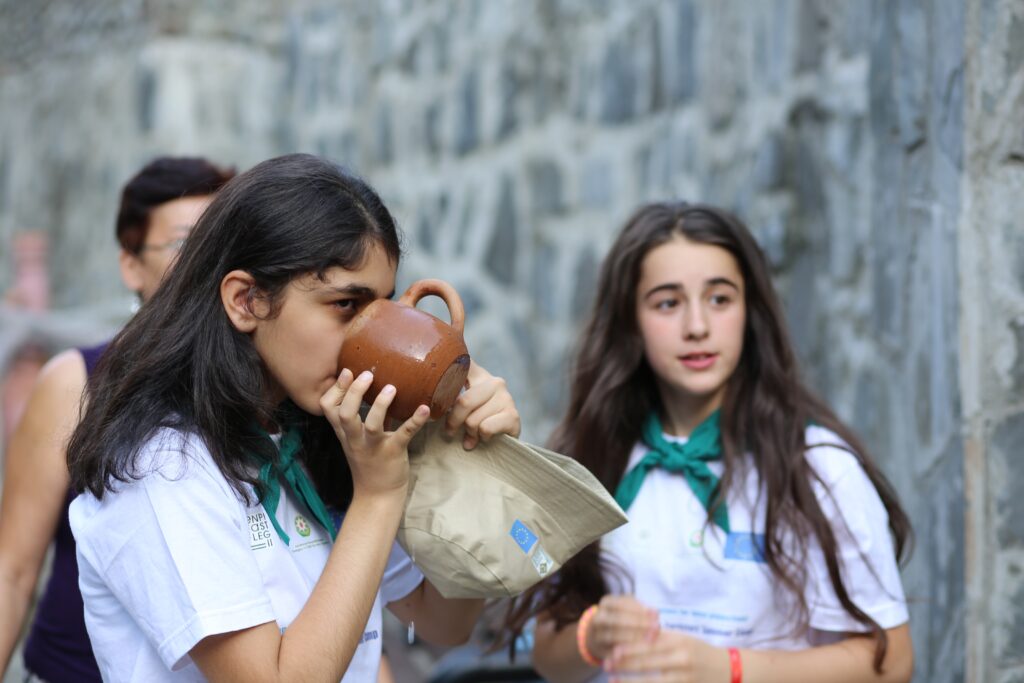 Young Azerbaijani participate in educational activities organised within FLEG programme in the country
Young Azerbaijani participate in educational activities organised within FLEG programme in the country
The Centre for Environmental Education at the Education Ministry of Azerbaijan helped to develop the forestry unit. The centre’s representative, Lala Dadashova, says that schoolchildren from Qakh District, a popular area for tourists, assessed the scale of damage caused to the forest by tourists and proposed a special project.
The project entailed laying down a so-called “environmental trail”, a forest route for tourists along which the child forest rangers placed special signs with the help of professional rangers. They reminded tourists about basic rules in the forest: to take their waste materials away with them, not to break the branches of trees, not to pull plants out by their roots, not to bother forest animals, to be careful with fire, and so on. Tourists were also provided with a map of the trail.
“Unfortunately, many people do not realise the damage they cause to the forest with their negligent behaviour. This is the reason why we decided to offer a maximally convenient walking route to tourists, along which they would cause minimal damage to the forest,” says Ayla Aliyeva, one of the project’s founders.
The project was selected for participation in the International Junior Forestry Competition, which took place in St Petersburg in 2014. Young and professional forest rangers came to share their achievements and innovations in protecting forests in their respective countries. The jury liked the idea of the environmental trail and the team from Qakh received a bronze medal.
Ayla, a native of Qakh, says that being involved in the FLEG programme has made her look at the forest differently and better understand the processes that take place there, taught her to identify dangerous tendencies, and brought her closer to like-minded people from other countries.
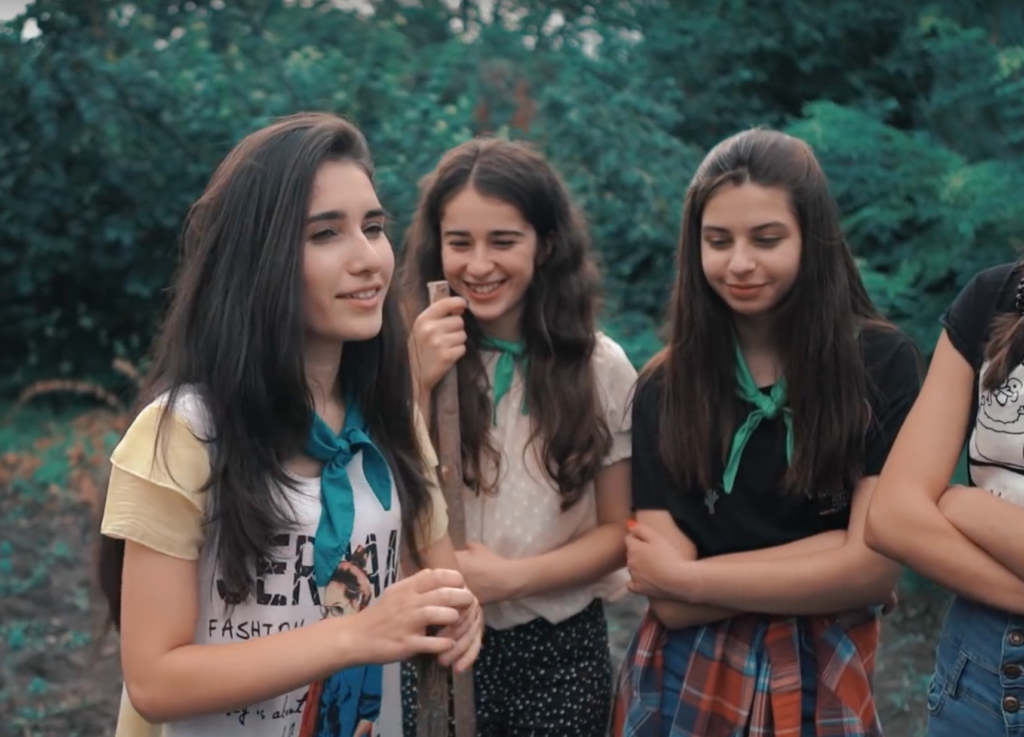 Ayla Aliyeva (left) together with other schoolchildren from Qakh District assessed the scale of damage caused to the forest by tourists and proposed a special project
Ayla Aliyeva (left) together with other schoolchildren from Qakh District assessed the scale of damage caused to the forest by tourists and proposed a special project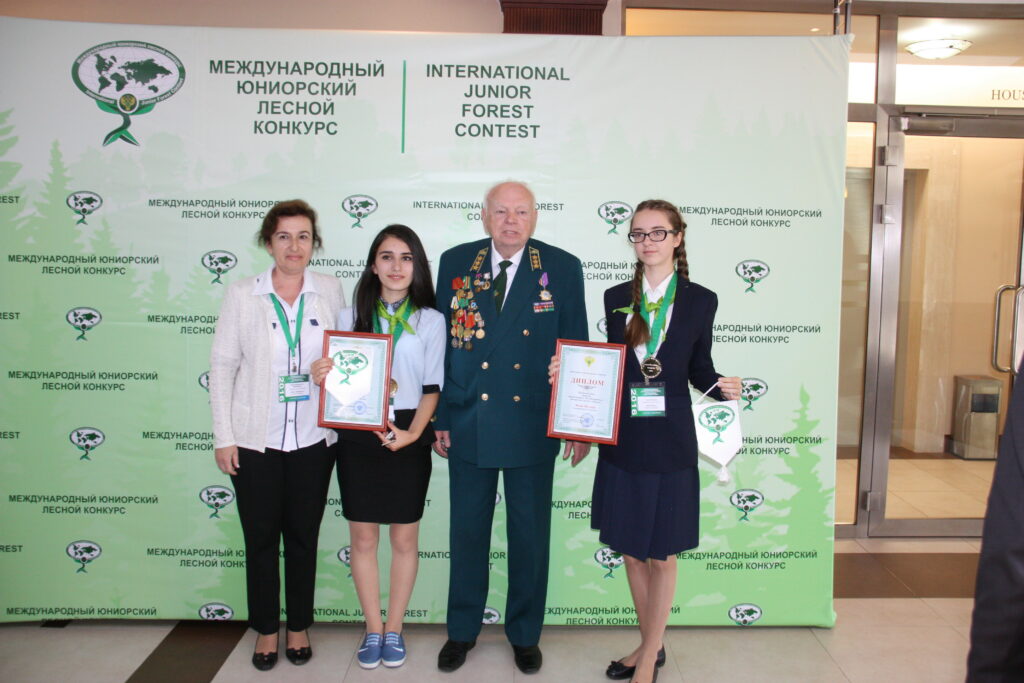 Ayla Aliyeva (second from left) brought the project to International Junior Forestry Contest
Ayla Aliyeva (second from left) brought the project to International Junior Forestry Contest
“To an amateur, the forest may seem beautiful. But when you start understanding ecological processes, then you can identify signs of landslides or other hazards in the forest. As young forest rangers we need to make sure that these processes do not take their own course,” she says.
When Ayla participated in the FLEG project, she was 19 years old. Two years on, she is a student at one of Baku’s universities. And even though she chose another profession, she is still actively involved in protecting the environment. As a member of an environmental organisation, she is in charge of a social project at her university, in which participants collect plastic bottles in special containers and send them for recycling.
The FLEG project also opened up a very different opportunity to another young forest ranger, Timofey Prokofyev, from Ivanovka village in Ismailli District.
The activist presented the work carried out by his team on the protection of Ismailli’s forests from fires at the International Junior Forestry Competition in St Petersburg.
Timofey is convinced that the process of educating young people is important for the protection of forests in the long run, and that this is much more effective if young people are also among the educators.
“Practice shows that young people listen to their peers more than adults, even if they share the same information,” he says.
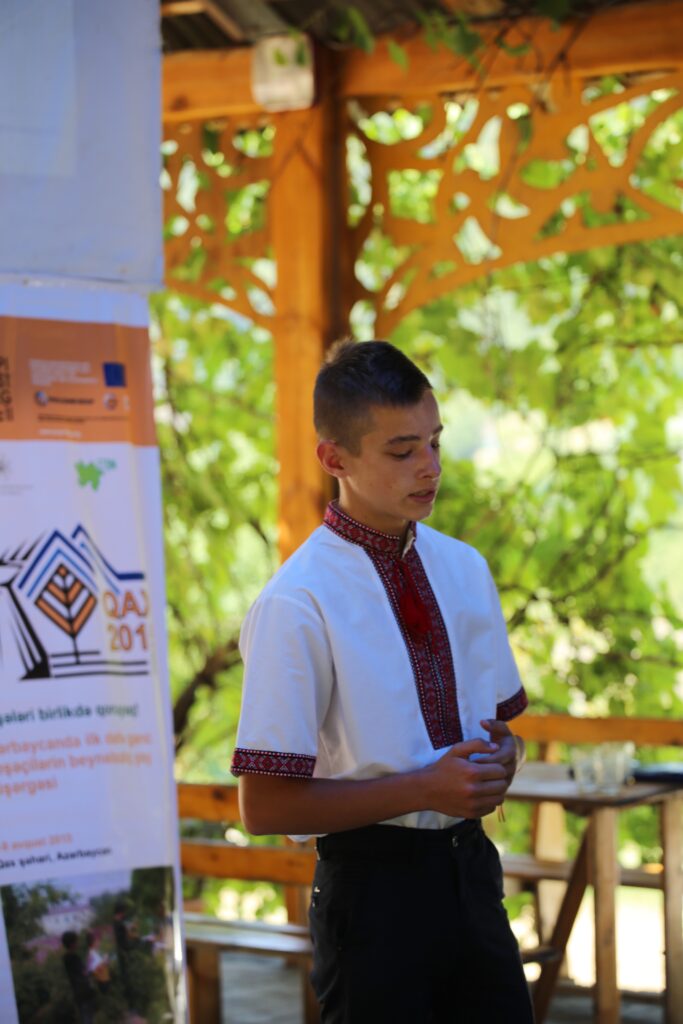 photo: FLEG II
photo: FLEG II
Both Timofey and Ayla took part in the first International Summer Camp for young forest rangers, which was organised within the framework of the FLEG project in the mountainous forest zone of the Qakh District of Azerbaijan, at the foot of the southern slope of the Greater Caucasus mountains.
“To be closer to nature” was the slogan of the camp, in which about 30 young forest rangers from all the countries participating in the FLEG project took part in August 2015.
Only 18 per cent of Azerbaijan’s territory is covered in forests, which is below average. Most of the forests are located in mountainous regions and only 5 per cent of forests are in lowland areas. Mostly, the forest consists of rare tree species, protecting water and soil and regulating the climate.
The country lacks specialised professionals in the field. There used to be a Forestry College in Agdam, which is now located on the country’s occupied territory. There are currently only two vocational schools which train forest specialists, in Shamakhi and Tovuz. However, both establishments are more general than specialised and only have a forest management department.
“We have enough graduates who studied forestry, but there is a great need for mid-level specialists. As a rule, untrained people work as forest rangers, who later learn the nuances of the profession in practice,” says Garayev.
This has prompted the FLEG project team to develop specialised training guidebooks. In total, six new guidebooks for teachers, schoolchildren and students at universities and vocational schools were approved by the Education Ministry and included in the curriculum.
Another achievement was the increase in interest among young people in pursuing a profession in the forestry field. According to Lala Dadashova, an expert at the Republican Forestry Centre, five years ago there were only nine students in Tovuz College’s Forestry Department, and today there are 14.
“Moreover, before, young people joined the forestry department because, as a rule, they could not get into more prestigious departments, but today forestry is a conscious professional choice,” she says.
Modernisation of the educational system, particularly the revival of VET, is one of the priorities of the bilateral cooperation between Azerbaijan and the European Union until 2020.
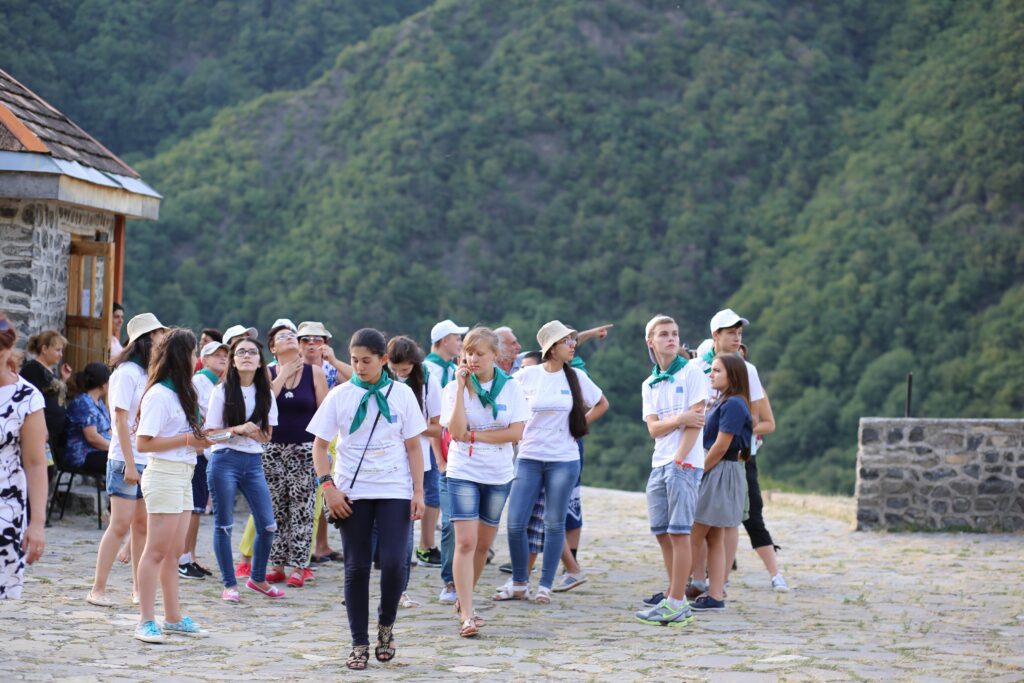 photo: FLEG II
photo: FLEG II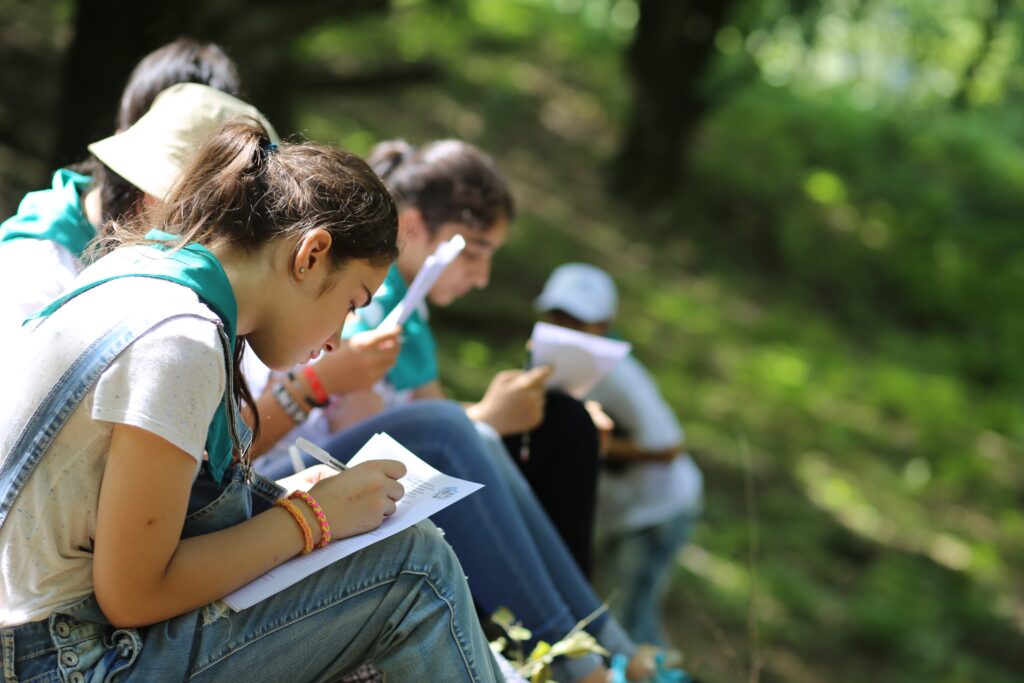 photo: FLEG II
photo: FLEG II
Besides the development of environmental education, other results were also achieved through the FLEG project. In particular, in analysing the human impact on the forests of Azerbaijan, it emerged that the reason for widespread illegal logging by the local population to heat their houses was due to the energy inefficiency of rural buildings.
“Over 90 per cent of houses in rural areas have natural gas, but people continue to heat them with wood. It all happens because, when building their houses, energy efficient technologies were not applied at all, and villagers cannot afford to heat their homes with gas,” Garayev explains.
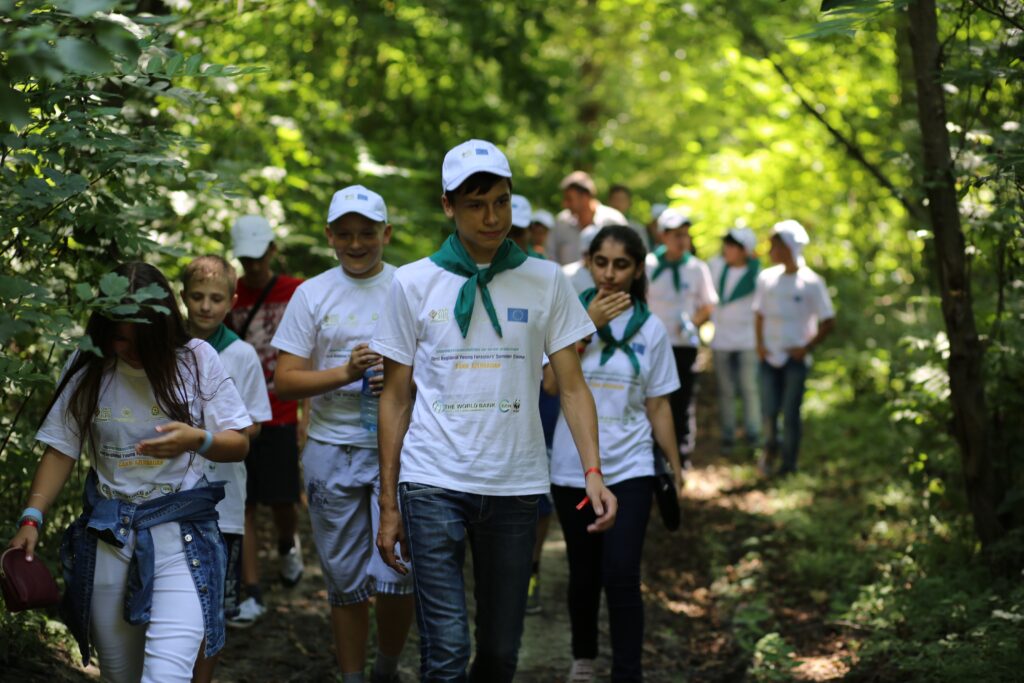 photo: FLEG II programme
photo: FLEG II programme
In addition, the current Forest Code of Azerbaijan was analysed as part of the project and a 400-page set of guidelines was prepared for forestry workers. All laws, regulations and by-laws related to the subject were assembled in the guidelines in order for the specialists to have better access to forestry legislation.
At the same time, recommendations were prepared on the modernisation of the Forest Code of Azerbaijan, which was written in 1997. Garayev says that the current code “is physically and morally obsolete” and does not meet modern needs. The recommendations made as part of the FLEG project are now being considered by the country’s Ministry of Environment.
Author: Elena Ostapenko
Article published in Azerbaijani and Russian by 1news.az
MOST READ
SEE ALSO

No, time is not on Russia‘s side
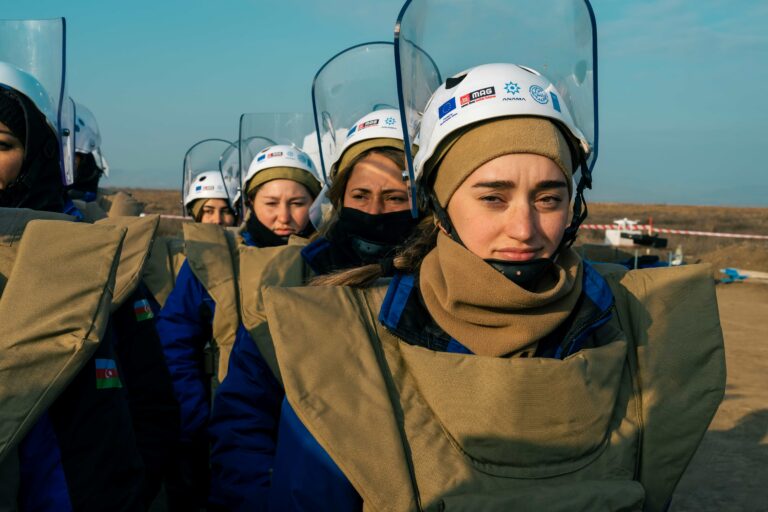
I have no regrets: the Azerbaijani women trained to clear mines
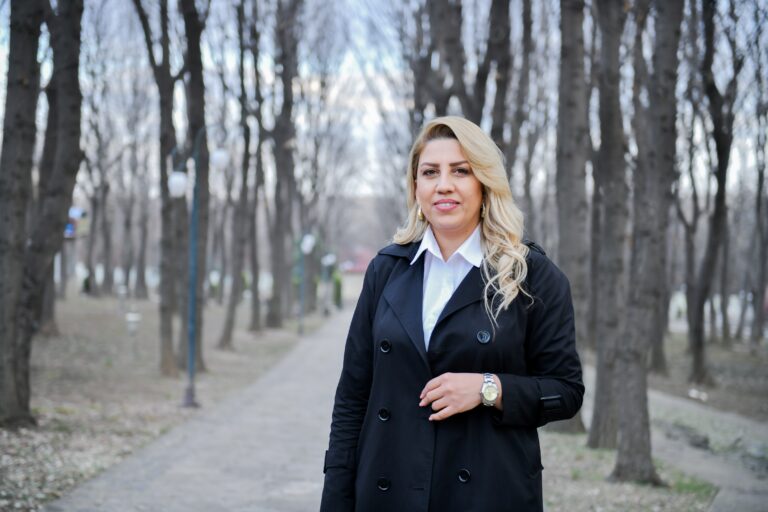
Turning a hobby into business: how Vusala Akhmadova from Tovuz helps women and children develop

Be one step ahead of a hacker: check simple cybersecurity tips!
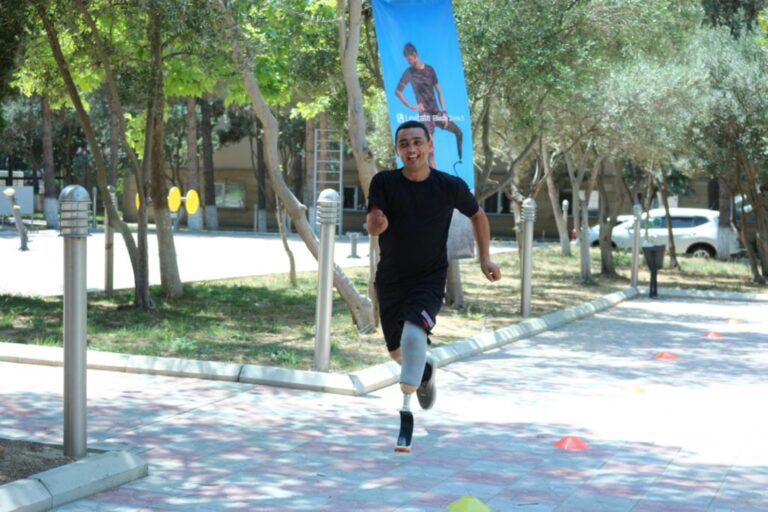
A chance for a better life: restoring justice for people with disabilities in Azerbaijan
More campaign pages:
Interested in the latest news and opportunities?
This website is managed by the EU-funded Regional Communication Programme for the Eastern Neighbourhood ('EU NEIGHBOURS east’), which complements and supports the communication of the Delegations of the European Union in the Eastern partner countries, and works under the guidance of the European Commission’s Directorate-General for Neighbourhood Policy and Enlargement Negotiations, and the European External Action Service. EU NEIGHBOURS east is implemented by a GOPA PACE-led consortium. It is part of the larger Neighbourhood Communication Programme (2020-2024) for the EU's Eastern and Southern Neighbourhood, which also includes 'EU NEIGHBOURS south’ project that runs the EU Neighbours portal.

The information on this site is subject to a Disclaimer and Protection of personal data. © European Union,







